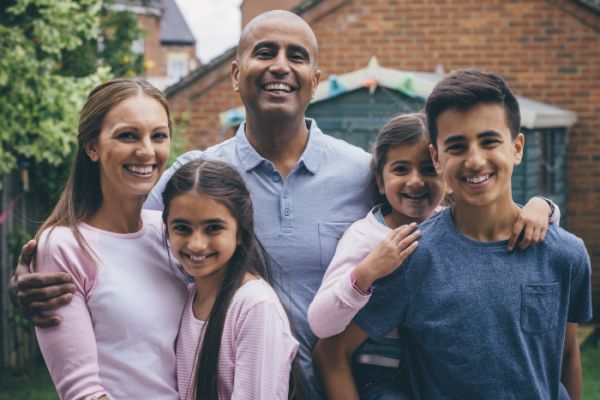It started in March 2020, during the first lockdown. At the time, my daughter was living in a single supported house, with a care plan to enable her to gain independent living skills, and was supported by staff. She lives with a moderate learning disability, autism and was diagnosed with ADHD in 2018.
She’s also very active in her local community. Boris Johnson said we had to stay at home, not go to work or see friends or family, unless we were part of a support bubble. It was decided by the Supporting Living Manager that I wasn’t part of my daughter’s support bubble, only her staff. There was no direct contact with me, friends, family or her support networks as part of her routine.
As you can imagine, this had a massive impact on my daughter’s mental health. She started to hear voices, lost weight, became frustrated, lonely, isolated and withdrawn. To cut a long story short, she had a breakdown or burnout as we call it in the counselling world. As a result, she was prescribed two types of anti-psychotic medication, with side effects that were devastating, i.e. dribbling, no emotions, confusion, lethargy and was like a zombie. She even had to have scans, due to the rise in the prolactile levels in her brain. I contacted the local authority for advice, and was informed that: "the manager is following guidelines". As a parent, seeing my daughter go through this had an impact on my mental health. I felt powerless, helpless, frustrated, angry, guilty and anxious. I also had difficulty sleeping, had very little appetite and felt that I had to put on a brave face for my daughter’s sake and those around me. I felt like no one was listening. I lost total trust in those who were supposed to have my daughter’s best interests at heart and had little support from friends and family. Counselling helped me to feel safe and cope with my trauma.
In the Ethical Framework, Care of self as a practitioner states: We will take responsibility for our own wellbeing as essential to sustaining good practice with our clients by:
a. taking precautions to protect our own physical safety
b. monitoring and maintaining our psychological and physical health, particularly that we are sufficiently resilient and resourceful to undertake our work in ways that satisfy professional standards
c. seeking professional support and services as the need arises
d. keeping a healthy balance between our work and other aspects of life.
Having counselling is not a weakness, contrary to some belief systems in society, including the stigma it can have. I felt safe with the counsellor to express my feelings, and constantly cried - until I found a way forward to be part of my daughter’s bubble, that ironically I always was! It’s taken nearly two years of counselling for me to feel grounded and in a better place. I want to tell my story to others and take action to change the system, please sign my petition if you'd be interested in supporting this. Counselling is still part of my self-care as a practitioner.
Read more...

Children, young people and families
Promoting the importance of early intervention and access to timely psychological therapies for children, young people and families is a priority for BACP.

BACP Children, Young People and Families division
BACP CYPF is for practitioners and other professionals interested in counselling and psychotherapy for children and young people.

Blogs and vlogs 2023
News and views from members, staff and clients
